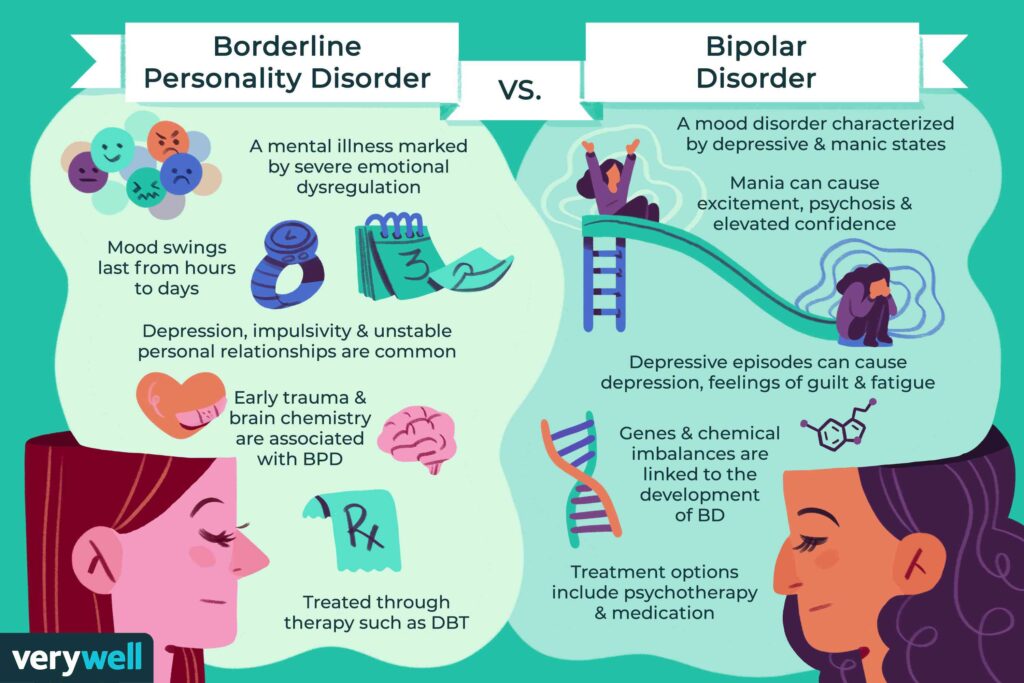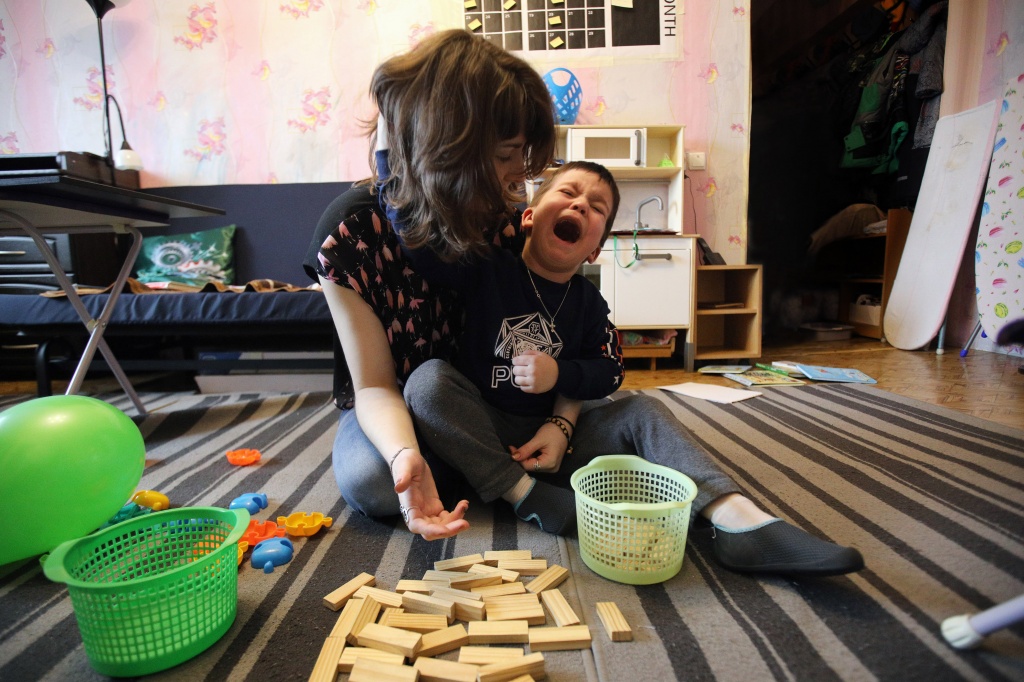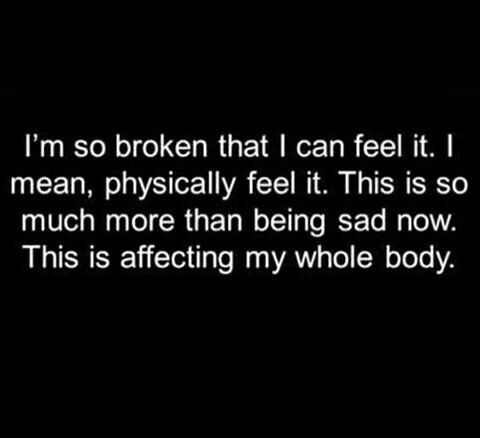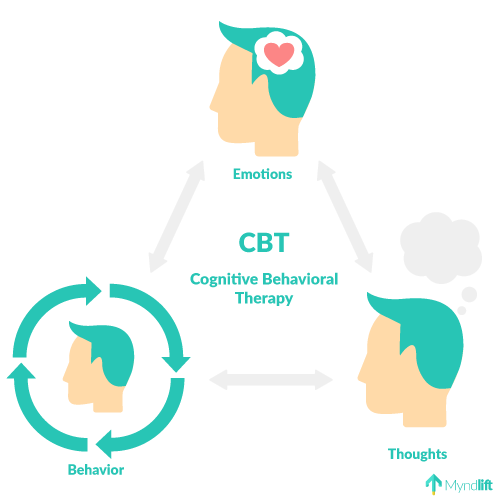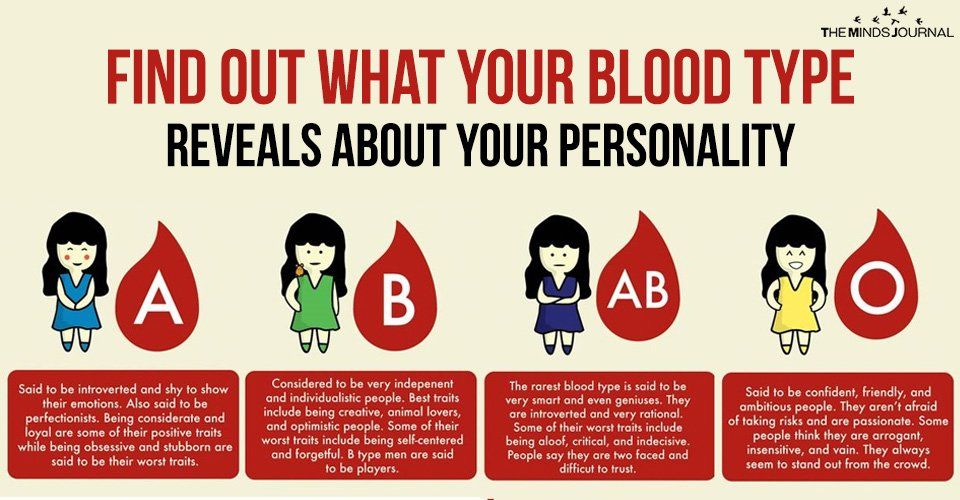How to deal with betrayal in a relationship
How to Get Over Betrayal in a Relationship
What does betrayal mean in a romantic relationship? Is it only infidelity, adultery, or cheating? Not really. Betrayal may come in many forms. Your partner running into somebody else’s arms indeed feels like the highest form of betrayal.
But, how about not making the relationship a priority? Breaking promises and marriage vows? Emotional cheating? Financial infidelity? Lying or withholding information? Disclosing personal information that’s been shared in confidence?
All of these are different types of relationship betrayals. If your partner has betrayed you in any of these ways, you might be wondering how to get over betrayal in a relationship and why betrayal hurts so much?
So, how do you get past the betrayal, and what are the ways of healing from betrayal trauma? I encourage you to keep reading. Because in this article, we’ll explore why betrayal hurts so badly and have a look at 15 steps to get over betrayal in a relationship.
Why Does Betrayal Hurt So Much?
Betrayal in love (and in general) means violating someone’s trust and confidence. When people get into a committed relationship, they agree upon a certain level of commitment.
They make agreements in good faith and believe that both partners will hold up their end of the bargain. So, when one partner can’t commit to what they’ve promised, the betrayed partner’s world turns upside down( understandably so).
It destroys their self-esteem and makes them question their self-worth. The betrayed partner starts to doubt everything the betrayer says and does. The breach of trust has done a number on the relationship, and heartbreak’s pain is no less painful than physical pain.
Both partners respect and live by similar core values in any healthy relationship and trust that the other person won’t deliberately hurt them. When someone betrays their partner’s trust, it shakes the foundation of the relationship.
It feels like we’ve put our trust in someone who didn’t deserve it. It leaves us feeling shocked, confused, and insecure. How can we trust people again after someone so close has shattered our trust?
It leaves us feeling shocked, confused, and insecure. How can we trust people again after someone so close has shattered our trust?
We start to live in constant fear of betrayal. All humans crave emotional intimacy and connection. A partner’s betrayal makes it difficult to trust people, preventing us from forming meaningful relationships.
Losing our trust is a terrible loss, and that’s why betrayal hurts so much—wondering how to get over betrayal in a relationship? Let’s get to it.
Related Reading: Trust and Betrayal - How to Repair the Fractured Relationship?
15 steps to get over betrayal
There are no specific guidelines on how to get over a betrayal in a relationship since the road to recovery is different for everyone. But, following these 15 steps will help you to recover from betrayal in a relationship.
1. Acknowledge the betrayalSomeone you trusted with all your heart has betrayed you and smashed your heart into smithereens. It’s devastating, yet you find it unbelievable. You can’t understand how and why your partner would do something like this to you.
It’s devastating, yet you find it unbelievable. You can’t understand how and why your partner would do something like this to you.
So, you resort to denial. No matter if the betrayer had intentionally hurt you or not, your trust has been violated. Acknowledging it is the first step to heal from the betrayal trauma and move past it.
2. Name your emotionsHow do you feel about the betrayal? Angry? Shocked? Sad? Disgusted? Ashamed? You might experience a whirlwind of emotions.
Instead of trying to deny or suppress them, name them. Don’t use denial to conceal hurt feelings. It’s crucial when you’re trying to get over a betrayal in a relationship.
3. Don’t blame yourselfWhen someone betrays you, your self-esteem takes a hit. It’s normal to blame yourself for your partner’s actions.
While replaying the betrayal in your mind, you might feel like if you were fulfilling your partner’s emotional and physical needs, they wouldn’t be resorting to somebody else.
Related Reading: Life Lessons Betrayal in a Relationship Can Teach You
But betrayal is always a choice. A bad relationship doesn’t give anybody a free pass to do whatever they want.
4. Spend some time apartIt would be best if you had some time to process what has happened. No matter how desperately your partner tries to contact you and ask for forgiveness, don’t give in.
Let them know that you need some time alone to process and think clearly. It doesn’t mean you’ve decided to break up with them. Taking time away helps you to come to terms with the betrayal and find clarity.
Recovering from betrayal in marriage isn’t easy. You’re torn between leaving the relationship and repairing the damage.
Whatever you end up doing, taking some time away is crucial to your mental health and emotional well-being.
5. Grieve the loss of trustPeople grieve the death of their loved ones because losing someone close is a loss. Betrayal is also a loss of trust, and it’s normal to experience grief after being betrayed.
Betrayal is also a loss of trust, and it’s normal to experience grief after being betrayed.
So, be prepared to go through the five stages of grief- denial, anger, bargaining, depression, and acceptance while getting over a betrayal in a relationship. Not everyone goes through all of them. You might not even experience them in this order.
But allow yourself to grieve in your way so that you can deal with the loss in a healthy way.
6. Avoid the temptation to retaliateYou are probably already aware of the saying, ‘An eye for an eye makes the whole world blind.’ You must be furious with your partner for betraying your trust. It’s normal to feel the urge to inflict pain upon your betrayer and make them suffer.
While there are many positive ways of getting over betrayal in a relationship, retaliation isn’t one of them. If anything, it’ll only delay your healing process. No matter how angry you are, don’t resort to betraying your betrayer.
Related Reading: Prevent the Damage from Betrayal in a Relationship7.
 Open up to someone you trust
Open up to someone you trustBeing deceived by someone you love might make you feel like you can’t trust anybody at all. But, seeking emotional support from your loved ones is a crucial factor in the recovery process.
If you feel ashamed and don’t want to share the gory details of your partner’s betrayal, you don’t have to. Just talk about how you think about the incident. However, make sure you speak to someone who can stay neutral and offer you their brutally honest opinion instead of adding fuel to the fire.
No trusted confidant around? You can always confide in a relationship expert and ask how to get over betrayal in a relationship.
8. Develop a game plan to overcome betrayalNow that you’ve had some time to process the incident, it’s time to devise a plan for recovering from betrayal. Yes, you still are feeling betrayed, shocked, and devastated. You’re having a hard time coping with betrayal.
But you can’t heal if you keep dwelling on how they’ve wronged you or reliving that painful memory by replaying it in your head. It’s time to decide how you want to move forward. Do you want to forgive your partner and rebuild the relationship?
It’s time to decide how you want to move forward. Do you want to forgive your partner and rebuild the relationship?
Thinking of a temporary separation, or do you want to end it for good? Do you want to start meditation and journaling? Want to take a therapist’s help to heal your broken heart? Figure it out and get ready to begin healing.
9. Reflect upon thingsOnce you feel in control of your emotions again, it’s a good idea to spend some time engaging in introspection. Reflect on your relationship, how things were before the betrayal and how things need to change if you want to give your partner a chance to redeem themself.
When you’re dealing with betrayal and thinking ‘how to get over a betrayal in a relationship,’ it’s normal to feel like your partner wouldn’t hurt you like this if you did things differently. While there’s plenty of scope of improvement for all of us, your partner’s betrayal is their choice and has nothing to do with your self-worth or behavior.
If there were issues in your relationship before the betrayal took place, both of you need to find ways to fix the problems if you want to continue the relationship. But your partner needs to take responsibility for their actions and show genuine remorse first.
Related Reading: The Damage of Betrayal in Marital Relationships10. Have a conversation with your partner
You might not feel comfortable with the idea of confronting the person who betrayed you. But, for your peace of mind, it’s important to communicate with your partner and let them know how their actions made you feel.
If they’ve been asking you to listen to them, you can give them a chance to tell their side of the story. Notice if they try to justify their action or feel genuinely sorry about it. Use ‘I’ statements when you speak, make sure not to lose your cool, and do it gracefully.
11. Try to forgiveForgiving doesn’t mean overlooking, accepting, or excusing the wrong that has been done to you. You don’t even have to get back together with that person if you don’t want to.
You don’t even have to get back together with that person if you don’t want to.
You can think of giving your relationship a chance only if the person genuinely seems remorseful. But, even if they aren’t, forgive them for your sake. To truly heal from a betrayal, you’ll need to forgive the person and let go even if they don’t deserve your forgiveness.
Watch this video to know how to forgive someone:-
Was this your partner’s first betrayal of trust? Do they recognize the pain they’ve caused you? Have they accepted the responsibility for their actions and asked forgiveness? Are they repeated offenders, or was it an unintentional isolated incident?
End the relationship if this wasn’t their first time betraying your trust. If you stay in a relationship with someone who keeps breaking promises and hurting you, you’re enabling them, and there’s no reason for them to stop.
You don’t have to trust someone blindly. Start with little things and take small calculated risks.
If you’ve decided to give your partner a chance to regain your trust, give them incremental trust instead of trusting them like before.
14. Learn to trust yourself againTrusting yourself is one of the most crucial steps to take when you’re dealing with betrayal. To trust others, you need to trust your ability to make sound judgments and adjust your trust indicator slightly.
15. Take care of yourselfYou’ve been through a lot, and it’s time to make yourself a priority. Moving on isn’t something that happens overnight.
But, you need to start with small steps, regardless of whether you decide to end or rebuild the relationship, practice self-care and regain your confidence.
Related Reading: How to Forgive Your Husband for BetrayalConclusion
Even if it doesn’t feel like it at the moment, the pain of betrayal will eventually fade, and you’ll be able to leave it in the past. The betrayal doesn’t have to end your otherwise great relationship, though.
The betrayal doesn’t have to end your otherwise great relationship, though.
If both you and your partner are willing to go the extra mile, it’s possible to rebuild trust in your relationship and stay together.
Signs and How to Start Healing
If someone close to you has ever broken your trust, you’ve probably felt the sting of betrayal. This pain can leave deep wounds.
Any type of betrayal can cause emotional distress, but you might experience lingering trauma when someone you depend on to respect your needs and generally help safeguard your well-being violates the trust you’ve placed in them.
Betrayal trauma typically refers to the lingering pain and turmoil experienced after:
- betrayal by a parent or other childhood caregiver
- betrayal by a romantic partner
When you rely on someone for basic needs as well as love and protection, you might accept a betrayal in order to ensure your own safety.
You might also find yourself accepting the possibility of future betrayals — something that can begin to degrade self-esteem, emotional well-being, and the ability to form attachments with others.
Betrayal trauma was first introduced as a concept by psychologist Jennifer Freyd in 1991. She described it as a specific trauma that happens in key social relationships where the betrayed person needs to maintain a relationship with the betrayer for support or protection.
Betrayal trauma theory suggests harm within attachment relationships, like relationships between a parent and child or between romantic partners, can cause lasting trauma.
People often respond to betrayal by pulling away from the person who betrayed them. But when you depend on someone to meet certain needs, this response might not be feasible.
Children, for example, depend on parents to meet emotional needs along with food, shelter, and safety needs.
Similarly, someone who lacks financial or social resources outside of their relationship may fear that acknowledging the betrayal and leaving the relationship could put their safety at risk.
This fear of the potential consequences of acknowledging the betrayal might prompt the betrayed person to bury the trauma. As a result, they may not fully process the betrayal or remember it correctly, especially if it happens in childhood.
As a result, they may not fully process the betrayal or remember it correctly, especially if it happens in childhood.
Relation to attachment theory
Though experts originally applied the concept of betrayal trauma to children betrayed by caregivers, it became clear that this type of trauma could also happen in other relationships.
Let’s take a step back to the basics of attachment theory — attachment comes before betrayal, after all.
Your earliest childhood relationships are so significant because they lay the groundwork for later relationships. When these bonds are strong and secure, they pave the way toward secure attachments in adulthood.
Insecure bonds, on the other hand, often lead to shaky or troubled relationships.
A parent bringing a child into the world has a responsibility to protect and care for that child. This responsibility forms an unspoken agreement between parent and child. The child looks to the parent to prioritize their well-being, and they typically trust their parents entirely — until the parent lets them down.
In a romantic relationship, you might not need your partner to survive, but you probably depend on them for love, emotional support, and companionship.
These relationships also rest on agreements — the boundaries defining the relationship. Partners in a monogamous relationship, for example, generally have some shared understanding of what defines cheating and agree to trust each other not to cheat.
A partner who cheats betrays the terms of that understanding.
The trauma of betrayal can affect physical and mental health, but the specific effects can vary depending on the type of trauma. Keep in mind that not everyone experiences trauma in the same way, either.
Childhood trauma
The effects of betrayal can show up shortly after the trauma and persist into adulthood.
Key signs include:
- trouble recognizing, expressing, or managing emotions
- anxiety, depression, and other mental health symptoms
- nightmares
- physical pain or stomach distress
- panic attacks
- thoughts of suicide
- difficulty trusting others
- attachment issues
- eating disorders
- substance use
Children who experience betrayal may also end up dissociating, or detaching from reality to avoid memories of the abuse.
If your parent fails to protect you, this betrayal can so deeply contradict what you expect that you end up blocking it in order to maintain the attachment. Blinding yourself to the betrayal and your fear of future betrayals helps you survive in a relationship you believe you can’t escape.
Your ability to “forget” becomes a coping mechanism. Yet while dissociation might help you cope with the trauma, it can also affect your memory and sense of self.
Infidelity trauma
Betrayal in a romantic relationship usually takes the form of infidelity, though other types of betrayal, such as financial betrayal, can also provoke a trauma response.
The discovery of infidelity often leads to:
- loss of self-esteem and self-worth
- numbness
- anger
- guilt
- difficulty controlling emotions
- intrusive thoughts about affair details
- loss of faith in others
- suspicion and hypervigilance
- depression, anxiety, and other mental health symptoms
- physical symptoms, including insomnia, pain, and stomach distress
Betrayal blindness can also happen in the context of romantic relationships.
Maybe you don’t exactly need your partner to survive, but you might still feel unable to leave, for any number of reasons — children, lack of options, no income of your own.
Relationships also fulfill important belonging and social connection needs, and a betrayal can leave you wondering how you’ll get those needs met in the future.
Instead of staying alert to signs of cheating, you might choose (often unconsciously) to ignore or overlook clues in order to safeguard your relationship and protect mental health.
After a betrayal in a romantic relationship, you might find yourself dealing with ongoing trust issues and self-doubt. Even if you choose to give your partner another chance, it might take months, even years, to successfully rebuild trust.
If you dealt with childhood trauma by dissociating or blocking out what happened, your memories will eventually resurface, especially if something similar happens to trigger their return. Blocking them again may not be an option. Even if you do manage to shove your memories away again, this won’t help you heal.
Even if you do manage to shove your memories away again, this won’t help you heal.
The route to recovery may not look the same for everyone, but these strategies can help you take the first steps.
Acknowledge instead of avoid
Healing often requires you to first come to terms with what happened.
When you don’t address the betrayal, your turmoil can spill over to other areas of your life. You can’t erase it, so no matter how carefully you try to suppress what happened, you might catch yourself replaying those memories when you’re with friends, caring for your children, or driving to work.
Leaning into a trauma like infidelity might seem too painful to even consider. In reality, though, acknowledging it allows you to begin exploring the reasons behind it, which can help kick off the healing process.
Instead of getting trapped in an unrelenting cycle of self-doubt and self-criticism, you can begin coming to terms with underlying relationship issues, such as lack of communication or intimacy, and explore ways to resolve them.
Note: This doesn’t mean the blame for the betrayal lies with you. Choosing to cheat is an unhealthy response to relationship problems.
Practice accepting difficult emotions
Plenty of unpleasant emotions can show up in the aftermath of betrayal. It’s common to feel humiliated or ashamed. You might also feel furious, vengeful, sick, or grieved. Naturally, you might find yourself trying to avoid this distress by denying or trying to block what happened.
Although hiding from painful or upsetting emotions might seem easy and safe, avoiding or masking your emotions can make it more difficult to regulate them.
Putting a name to specific emotions — anger, regret, sadness, loss — can help you begin navigating them more effectively.
Recognizing exactly what you’re dealing with can make it easier and less frightening to sit with those emotions and slowly increase your awareness of them. Greater emotional awareness, in turn, can help you begin identifying strategies to cope with those feelings more productively.
Turn to others for support
Opening up about betrayal isn’t always easy. You may not want to talk about childhood trauma or your partner’s affair. Plus, once someone has betrayed your trust, you might have a hard time trusting anyone at all.
Yet people need emotional support, especially during stressful times. Your loved ones may not need to know exactly what happened, but they can still offer companionship when you don’t want to be alone and distraction when you can’t get away from your looping thoughts.
It’s perfectly OK to politely let your friends know when you’d like guidance and when you’re just looking to share feelings without any well-intentioned advice.
You may want to step carefully when discussing a partner’s cheating with mutual friends. Gossip can make a difficult situation even more painful, so you may want to save the in-depth details for your most trusted loved ones.
Focus on what you need
After a partner cheats, most people need some time to decide whether to end the relationship or try repairing the damage. This isn’t something you should feel pressured to decide right away. A relationship therapist can offer support and guidance as you consider whether you believe rebuilding trust is possible.
This isn’t something you should feel pressured to decide right away. A relationship therapist can offer support and guidance as you consider whether you believe rebuilding trust is possible.
As you begin to recover from the initial shock of trauma, pay extra attention to your needs:
- Instead of lying awake cycling through distressing thoughts, try aromatherapy, a warm bath, or soothing music to relax and improve your sleep.
- Instead of skipping meals when you feel nauseous or have no appetite, snack on energy-boosting foods and keep yourself hydrated.
- Favorite movies and familiar TV shows can calm and comfort you, but try to mix in some other hobbies, too. Yoga, walking, reading, or gardening all offer mood-boosting benefits.
Trauma can be hard to confront on your own. Professional support can make a big difference in the healing process. In therapy, you can begin to acknowledge and work through a betrayal before it causes lingering distress.
Therapists trained to work with survivors of abuse and neglect can also help with unpacking long-lasting effects of childhood trauma. If you have attachment issues, for example, a therapist might help you identify underlying causes of insecure attachment and explore strategies for building more secure relationships.
Most mental health experts recommend some form of couples therapy when attempting to heal a relationship after infidelity.
It’s also important, however, to work with a therapist on your own to:
- examine any feelings of self-blame
- work to rebuild self-esteem
- learn healthy strategies for coping with difficult emotions
When someone you love and trust does something to shatter the foundations of your relationship, the resulting trauma can be severe.
You can heal, though, and you might even come back stronger as you rebuild your sense of self and gain tools for developing healthy relationships. Ready to take the first steps? A therapist can offer guidance along the way.
Crystal Raypole has previously worked as a writer and editor for GoodTherapy. Her fields of interest include Asian languages and literature, Japanese translation, cooking, natural sciences, sex positivity, and mental health. In particular, she’s committed to helping decrease stigma around mental health issues.
How to Survive Cheating, Forgive the Cheat, and Move On
352,135
Cheating Man and Woman Relationship Crisis
“Many of my clients come to their appointments with this problem,” says family therapist Andrew J. Marshall. “Having survived the betrayal of a loved one, they decide to save the relationship, but even if everything looks good in a couple, many still periodically return to what happened in their thoughts and cannot completely forgive their partner.”
In such cases, he advises to write down and analyze your thoughts and emotions, as this will help to manage them. And in working with such clients, he uses an approach based on five simple techniques.
Accept your feelings
Please don't reproach yourself for not being able to magically leave it all in the past and move on as if nothing had happened. Perhaps your husband's infidelity has been the biggest shock in your life so far and it poses a serious threat to your well-being, so I'm not surprised that the pain keeps coming back and the same thoughts are spinning in your head. And you still can't understand how this monstrous betrayal could even happen.
Action #1
Name your feelings out loud instead of letting them bubbling up and down inside, it really helps. Tell yourself, "I feel angry, I'm worried, I'm confused" or something else. You don't have to do anything about these feelings - just acknowledge them.
Sometimes I ask my clients to start keeping a diary of feelings, where they record the time, the feeling and the reason that caused it at the moment
Keep it for several days or weeks, and you will find certain patterns. Believe me: if you notice your feelings, observe them, and do not suppress them, they will gradually weaken and become more manageable over time.
Believe me: if you notice your feelings, observe them, and do not suppress them, they will gradually weaken and become more manageable over time.
Work on your thoughts
Many feelings arise as a result of our thoughts. We tend to believe everything that our inner voice broadcasts as the ultimate truth. However, he often exaggerates or combines events from different life situations to provide us with irrefutable evidence that life is over. (I call this "catastrophic thinking.")
Practice #2
Don't let bad thoughts poison your life, write them down. Write as if your inner voice is dictating to you. And when you write everything, word by word, you will see that there is nothing particularly frightening there. Go back to the beginning of the text and look for exaggerations. For example, you wrote: "I'm so tired of thinking about cheating every day." I would be hooked by the phrase "every day." I think the word "often" reflects reality more accurately.
I know it's a very minor change, but the new word doesn't seem so helpless anymore, does it?
And then you might want to add a few clarifications. And write: “I often think about cheating and sometimes feel exhausted after it, although it also happens that after that I feel better.” I guess that the latter option is not only softer, but also more accurate. Reread the text again and pay attention to “always”, “never”, “should”, “should” and other words from the category of black and white vocabulary.
Think about what these memories want to tell you
You remember your husband's infidelity for a reason. Not because you are a bad person and are not able to forgive the betrayal of a partner or do not want to save the marriage. Most likely, your feelings are trying to tell you that some issues remain unresolved and that your relationship needs to be given more attention.
For example, your sex life has become too insipid, or your husband is constantly in conflict with your daughter, and you are forced to be torn between them, as if between two fires. If you continue to ignore these warning signals, your unconscious mind will send them over and over again.
If you continue to ignore these warning signals, your unconscious mind will send them over and over again.
Session #3
Go back to the diary entries that your inner voice dictated to you. Once you've filtered out the exaggerations, you're left with a few fairly straightforward tasks.
For example, to balance work and home life; go out somewhere together, because you have not done this even once in the last couple of months. Since you have already guessed what the memories are telling you, it would be quite logical to take practical steps to solve these problems. For example, turn off the phone after 9pm or book a table at your favorite restaurant.
Stop expecting the impossible from your partner and move on
If a person works as a secretary in the reception, you can hardly count on the fact that he will balance correctly or conduct excellent business negotiations. But I sometimes meet pioneers who expect from their partner some special spiritual subtlety, the ability to be aware of their own and other people's feelings, which in no way corresponds to his upbringing and character traits.
In particular, to the question “Why did you need this novel?” in many cases, the answers will be incomprehensible, simply because up to this point no one has asked a person about motivation. You may be counting on your partner to listen and sympathize even when you get angry, criticize, or shame him, when what he needs most right now is to work with a therapist who can get through the shell to the person who is looking for support.
Reception No. 4
We tend to see our partners as we like to see them, rather than as they really are. And yet, for some reason, we are sure that they think exactly the same as we do. Although girls are usually raised differently than boys, the appearance of children affects women and men differently. Try to accept in a partner not only his strengths, but also his shortcomings. Be aware that there is something impossible for him, beyond his strength.
Get rid of perfectionism
The most destructive of all emotions is shame. You will feel embarrassed for the recent tantrum or outburst of anger, and even more ashamed of you for being cheated on, and for the fact that you, apparently, are not good enough.
You will feel embarrassed for the recent tantrum or outburst of anger, and even more ashamed of you for being cheated on, and for the fact that you, apparently, are not good enough.
Since this feeling is unpleasant for us, we try desperately to avoid it. The most typical way is to try to be perfect in everything and hope that this will protect us from possible future suffering. We try to be the best for our partner and hope that he too will turn out to be the perfect repentant sinner.
I also often meet people who portray their relationship as ideal before infidelity and then become doubly angry at their spouse who ruined this whole idyll.
Reception No. 5
I like the phrase of the German philosopher Immanuel Kant: “You can’t cut anything straight out of such a crooked log as a person.” In other words, we cannot be perfect because we are human. And when we make a mistake or fail to achieve the impossible, we are nonetheless ashamed of it.
Returning to the first point, take this feeling in yourself and analyze the thoughts that arise about this. It's certainly worth aiming to be the best version of yourself and your marriage to be the best version of yourself, but please, let's not aim for absolute perfection.
It's certainly worth aiming to be the best version of yourself and your marriage to be the best version of yourself, but please, let's not aim for absolute perfection.
diary
A handy and compact diary will help you keep track of your thoughts and feelings in order to survive infidelity. It will be convenient for you not only to set goals and plan days, but also to write down your thoughts.
Advertising. https://aliexpress.ru
Text: Maria Fedotova Photo source: Getty Images
New on the site
How to live longer: scientists have discovered a new psychological factor
"Doesn't hit - does it mean she loves?": signs of subtle violence - check your couple
"Why buy new underwear if only I see it?": how to live with a mean man
How to save yourself and help a loved one who will return with CBO
Test: Barratt Impulsivity Scale - what makes you special?
“DNA test led to an unexpected reunion”: how Natalia Vodianova found her younger sister 22 years later0003
When a child is a blogger: how to stop being afraid and learn to be in trend with him
How to survive betrayal.
 7 steps to a new life | Psychology of life | Health
7 steps to a new life | Psychology of life | Health Psychologist Anetta Orlova - about how to return to normal life after infidelity and cope with emotions, why you should not find out the identity of your partner's mistress, and questions that you need to ask yourself in such a difficult life situation.
1. Act solely in your own interests.
⠀If you found out about the betrayal out of someone's "good" will (demonstrative SMS on the phone, left traces on the shirt, etc.), don't go to extremes and don't break off relations with your partner right away. Give yourself time to analyze and, as far as possible, cool down. After that, tune in to an open dialogue: ask calmly and with a cold mind the questions that concern you.
Talk to a partner - it is likely that in this case the "well-wisher" is leading you to a quick emotional break.
If cheating is reported to you in hints or anonymously, think about the motive for such a report and whether everything is really as described to you. It is unlikely that a person who is friendly towards you will act this way.
It is unlikely that a person who is friendly towards you will act this way.
2. Analyze your role in the current situation
There are very few pathological traitors in serious relationships. In the vast majority of cases, this is the reaction of a man to the circumstances that have developed within your interpersonal relationships. Repeated betrayal is likely only if the mistakes made are not corrected.
Man and his love union are not the same thing. And male betrayal has nothing to do with your female defeat. Cheating does not devalue you or make you a victim or a victim.
If you are faced with betrayal, think about it, evaluate the relationship, what was done by you or your partner is not enough in this union. Not for everyday life, not for financial well-being, mortgages or external markers of success, but for relationships. This is a good reason to take a sober look at the situation and finally take care of yourself. The revealed fact of betrayal is always a huge stress, not only for the one who was cheated on, but also for the one who cheated.
3. Keep emotions under control what is happening or just start life anew).
Based on your and only your goal, build an algorithm of behavior with your man. In some cases, there is a chance to save the union and make it more pleasant for both partners, even after cheating. It's really possible, so don't cut or burn bridges at the same time.
4. Ask yourself questions. And answer them honestly
Don't meddle with your partner. He may, under the influence of a state or circumstances, say something that will resonate with serious pain in your heart, and wounds will take a long time to heal after these words, and the person himself will not even remember his words in a week.
If a partner cheated, but does not try to make amends, do not try to reason with him. In this case, it is better to turn to yourself and ask yourself a few questions:
- How do I feel about what is happening to me? Do I agree to this?
- What do I feel when all this happens: anger, irritation, resentment, sadness?
- Am I ready to live in this position and how long can I live like this?
- What date (what period) do I set for myself to stop enduring all this?
5.
 Understand how critical the situation is
Understand how critical the situation is If a partner cheats regularly, but does not leave, it means that he thinks that he is allowed to do this (albeit subconsciously), he feels his power.
Usually such people are more self-confident. They arrange their lives in such a way that finances and housing are under their control, they use double standards: "I can, but you can't."
When a person cheats and no one stops him, gradually his partner occupies less and less space, falling into a dependent position. If you are able to live independently, then it is better to end the relationship, because otherwise they will destroy your faith in yourself.
Dependent relationships cannot be complete, they cannot fill with a resource. They are destructive.
6. Analyze the target.
If a person is not prone to cheating, but it still happened, perhaps an unconscious desire to destroy the relationship has worked.
A man does not want to go through this alone, it is important for him to find someone on the side, someone who will support him in his desire to leave the relationship. The mistress often acts as an external fulcrum. It becomes a tool for solving personal problems.
The mistress often acts as an external fulcrum. It becomes a tool for solving personal problems.
If you feel that this was the purpose of cheating, get out of the relationship and don't try to find someone else to blame.
7. Don't try to find out the opponent's identity
Should you find out details about the opponent? Watch her, gather information, follow her on social media? The answer is obvious - no. There are enough reasons for hatred in life even without rivals.
Against the background of betrayal, you must become stronger, which means that there are no rivals for you. It is important to find a foothold within yourself and start a new period.
And one more important point - be prepared for the fact that sooner or later (in 80% of cases sooner) the partner who has changed will want to forget everything, "beg" for forgiveness, make promises and return to you, under the warm wing.
If at that moment the woman has already managed to cope with her emotions and is in a balanced, calm state, this is a signal for her partner that "everything is possible to start over.

